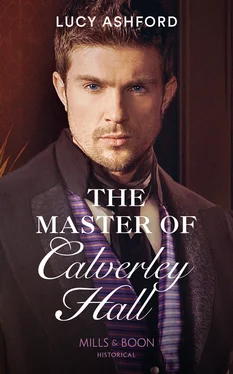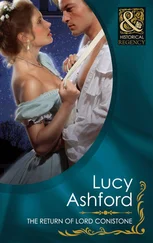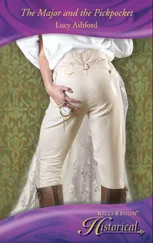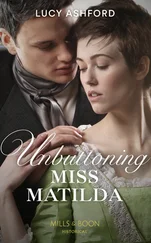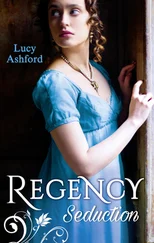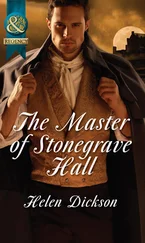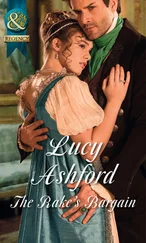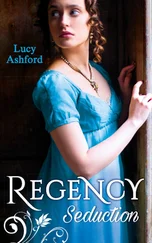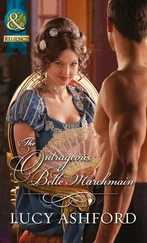But now Connor was the new master of Calverley. ‘Well,’ Tom had said when he heard the news, ‘I was thinking of retiring, to be honest. But since you’re back—if you need a fellow to run your stables, Mr Hamilton, then here I am!’ He’d puffed out his chest. ‘It will be an honour working for you, sir!’
And if Tom was recalling how Connor grew up the son of the local blacksmith, and had laboured every day in the heat of the forge, then old Tom said nothing at all.
Now Connor handed the reins to him, then went to help little Elvie down. ‘It’s a bit of a walk, Elvie,’ he told her. ‘But you don’t mind, do you?’
‘Oh, no. ’ She gripped his hand tightly.
‘Good girl,’ he approved and noted how her eyes were round with wonder as he guided her through the lively crowds. So, he thought to himself, people still came from miles around to the midsummer fair at Chipping Calverley. ‘It’s the prettiest village in Gloucestershire,’ people always used to say. ‘With the best fair in the whole of the county!’
And he was finding that every sound, sight and scent brought back memories. The appetising smell from the stall selling fresh bread. The music of the Morris Men with their fiddles and their bells. The laughter of the crowd watching the Punch and Judy show. You didn’t see many smiles on the faces of London’s businessmen, thought Connor. Not unless they’d just made a vast profit in some big financial deal—and even then, their smiles were only half there, because their brains were already busy counting up the money.
Talking of money, those creatures in the livestock pens had to be worth a fair amount. He steered Elvie towards where the farmers stood proudly by their animals and the crowds pressed against the enclosures to get a better view.
‘Look, Elvie. See the calves?’ He lifted the little girl up high to get a better view of the cows with their young ones and—firmly chained to a stout post—the muscular black bull that gazed balefully at the awestruck crowd. Elvie gasped in delight, then they moved on because a little way past the cattle enclosure Connor had spotted some colourfully dressed gypsies offering pony rides. He saw Elvie gazing at them. ‘Do you want a ride?’ he asked her gently.
She hesitated and shook her head; he thought he glimpsed uncertainty in her eyes.
‘Perhaps another time, then,’ he said. ‘Yes?’ And she nodded.
Maybe I ought to get her a pony of her own, Connor mentally noted. A small one, a gentle one. It will give her something to take care of. Perhaps even help her, in a small way, to get over her father’s death.
Connor, too, missed Miles Delafield. The older man had been not only his business partner, but his close friend. Miles would have loved all this, he thought suddenly. He gazed around and realised that if you looked beyond the fairground and up the valley, you could actually see Calverley Hall on the far side of the river. From here you got a heart-stopping view of its acres of gardens running down to the water meadows; of its gabled roofs and diamond-paned windows sparkling in the June sun.
And now—all of it belonged to him. What talk there must have been, when the locals heard he was moving in. What speculation about the money he had made. And if he’d hoped to make his appearance here at the fair unnoticed, he was mistaken, because he was finding himself hailed in hearty greeting by landowners and businessmen who wouldn’t have acknowledged his existence in the old days. They came up to him one after another, declaring, ‘We must get together soon, Hamilton! It’s good to see you back, hopefully to restore the Hall to its former glory. You’ll come round for dinner soon?’
And then there was the local Vicar, the Reverend Malpass. Malpass ran a small school for the children of the deserving poor, which Connor had briefly attended before being thrown out for hiding a frog in the Vicar’s desk.
Did Malpass remember? Surely he did—but he was almost painfully effusive in his attempts to welcome Connor home. ‘Mr Hamilton, it’s truly excellent news that you’ve moved into Calverley Hall. I remember you well—and I’m sure that you’re exactly what the place needs!’
Connor gazed at him, dark eyebrows slightly raised. ‘I remember you, too, Reverend Malpass. And I can see that you’ve hardly changed in the slightest.’
The Vicar hesitated. Frogs? thought Connor. Was he thinking of frogs? Then Malpass, clearly shrugging aside the past, beamed down on Elvie. ‘And this young lady is your relative, is she? Charming. Charming, I’m sure. How do you do, miss?’
‘I—I’m very well, sir.’
That stammer again. Connor felt Elvie shrink against his side and he gripped her hand. ‘She’s not my relative,’ he stated flatly. ‘Miss Elvira Delafield is the daughter of my former business partner.’
‘Ah, yes. Miles Delafield—he died recently of a heart attack, didn’t he? And I hear this poor little girl’s mother is dead, too—most, most unfortunate!’
Connor felt Elvie press closer. He’d always thought the Vicar was a blundering fool. ‘Indeed,’ he replied tersely. ‘Now, if you’ll excuse us...’
But no sooner had Connor got away from the Vicar than he found himself surrounded by a fresh hazard—women.
Oh, the women . Not just the young ones eyeing him up from beneath their beribboned straw bonnets, but their mothers, too, were coming at him from all sides. ‘My dear Mr Hamilton!’ they simpered one after another. ‘We’re truly delighted that you’ve returned to Gloucestershire. We do hope we’ll have the privilege of your company soon...’
And they proceeded to recite a list of church committees, fund-raising fêtes and parish entertainments that all sounded extremely worthy—but he knew, of course, what the tabbies were really thinking.
They would be thinking that Mr Connor Hamilton, at twenty-five years old, was an extremely wealthy man. Had risen from being a blacksmith’s son to partner in a highly successful iron business—and now that his partner had conveniently died, he’d got the lot. What was more, he was the new owner of the most impressive house in the district by far—a family home if ever there was one, even if it was somewhat neglected—and he was not married !
Connor endured just a few more moments of the mothers parading their daughters, but he was heartily glad to be distracted by Elvie tugging at his hand. ‘Connor,’ she was whispering. ‘Connor, look.’
He looked and realised there was some sort of disturbance over by the crowded ale tent. A cluster of children, none of them older than Elvie, were racing around and he thought he could hear a small dog yapping. There were adult voices as well now, raised in anger and in threat.
Connor, with Elvie’s hand still in his, drew closer. The children looked underfed and scruffy—he immediately guessed they were from the gypsy caravans that came every summer to set up camp in Plass Valley, half a mile from here. Their parents would be busy harvesting the hay and the children, he realised, were chasing after a puppy whose rope leash trailed after it. They dived to catch it, failed and tried again, shrieking with laughter as the excited puppy evaded them.
Local people didn’t like the Plass Valley children, Connor remembered. Local people didn’t like their parents much, either, despite the vital work they did on the farms in summer. The children’s appearance didn’t help, since judging by the mud splashes on their clothes and bare skin they’d all taken a dip in the nearby duck pond.
And so, evidently, had the puppy. Droplets of water were still flying from its fur as it shook itself, causing nearby ladies to shriek as their best frocks were bespattered, while their menfolk blustered. One burly man caught a little lad by the ear. ‘You young varmint, you and your kind should be beaten out of here. And I’ll—’
Читать дальше
